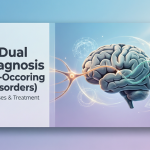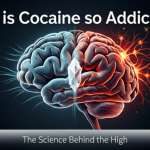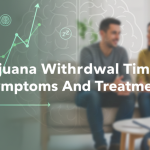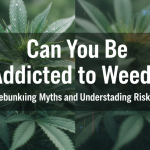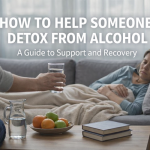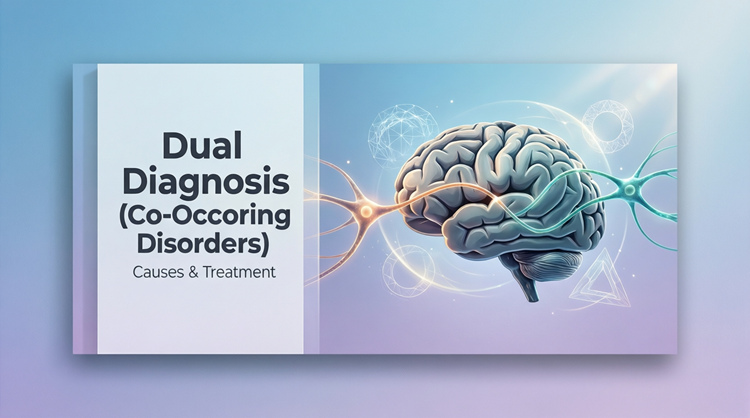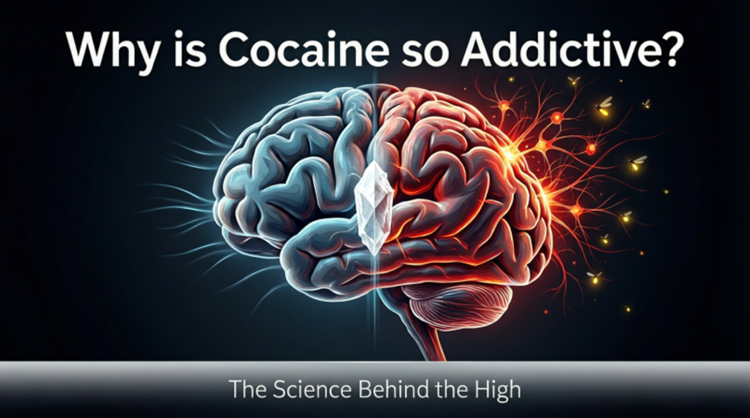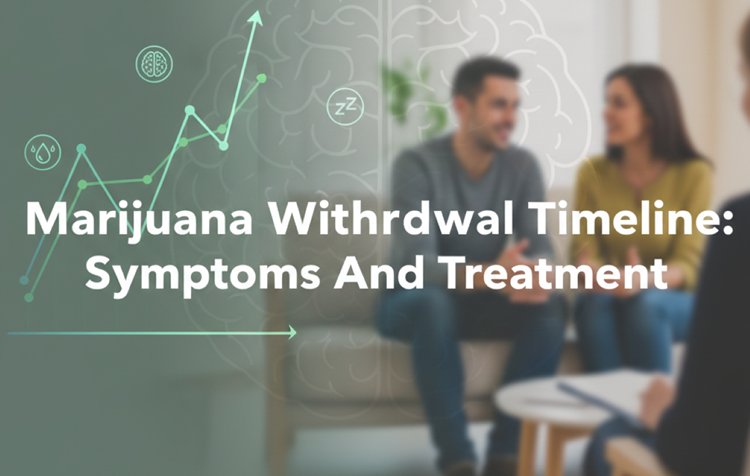In case the depressed individual possesses chronic depression (also called a long-standing low mood) and has a severe episode of depression that is overlaid over the floor of this base, the situation is referred to as Double Depression. Compared to the normal disorders of depression, this category of depression is very complicated and thus there is the need to know the definition, symptoms and management. Our mission will be to help individuals to overcome this challenging state and recover a more successful and healthier life at DeLand Treatment Solutions.
What is Double Depression?
Clinically, the term “double depression” is applied to describe the combination of a Persistent Depressive Disorder (also known as dysthymia) and Major Depressive Disorder (MDD).
Persistent Depressive Disorder (PDD) is a chronic and lower-grade depression, a condition that has lasted at least two years in an adult. The symptoms are not as intense as MDD but are nearly omnipresent.
Major Depressive Disorder is an acutely developed depression, at least two weeks of development period, and the functioning level is greatly deteriorated.
When the two occur together, when the case of low-level depression is present with one or several cases of major depression, then the phenomenon is commonly referred to as the double depression.
Although the term, however, appears to be outside the limited scope of diagnoses in the official diagnostic manual (the Diagnostic and Statistical Manual of Mental Disorders, Fifth Edition, DSM-5), the so-called double depression is still a term that can be successfully utilized to describe a more chronic and recurrent type of depressive pattern.
Why It Matters
The overall impact of a psychopathology called double depression is broader in effect than either PDD or MDD. Repeats of the relapse and the period of the impairment are likely in the victims. Making an early intervention gives the chance to trace the pattern, and this leads to a more positive solution in the long term.
100% Confidential Support is Available 24/7
No matter what you’re going through, you’re not alone. Our dedicated team is here to provide a safe, judgment-free space where you can talk openly and honestly. Whether you need emotional support, resources, or just someone to listen.
We’re here for you—completely confidential and always respectful of your privacy. Call us today!
Signs & Symptoms of Double Depression
Since the period of the low mood and the major depressive episodes occur sequentially and consistently, the symptom profile can include a wider range of features in the case of the presence of double depression. Common symptoms include:

There is chronic-based incapacity (Persistent Depressive Disorder element):
- Most days, two years or more (one year when dealing with younger people)
- Low energy or fatigue
- Lack of concentration or problems with decisions.
- Lack of self-esteem or despair.
- Sleep (insomnia or oversleeping) or eating (eating more or less).
Major depressive episode:
- Significant negative affective disorders: depression, hopelessness or desolation.
- Hate interest or pleasure in all things virtually.
- Weight change or change of appetite (or major).
- Feel no sense or feel too guilty.
- Repeated thoughts of or attempts at self-mutilation.
The fact that an individual has been having a lesser form of chronic depression may result in increased difficulty in identifying when an acute major episode is superimposed upon it; sometimes, the symptoms that seem to be the worst are merely considered as the point of departure and not as a new and treatable illness.
Causes & Risk Factors
There is no single causative factor of double depression. Rather, it consists of a combination of several factors:
- Mood disorders are genetically inclined or familial.
- Neurochemical (i.e., serotonin and norepinephrine) and structural abnormalities in the brain.
- Problems of early life adversity, trauma or chronic stress.
- Chronic substance or health-related disease that leads to the persistence of low mood.
The failure to overcome a past depression or previously untested chronic depressive symptoms, which provides an opportunity to add more of these episodes to the baseline, occurs at this point.
Diagnosis
Given the fact that double depression is not an accurate registration in the DSM-5, the diagnosis would involve the identification of persistent depressive disorder (with duration requirement) and major depressive episode occurring in a continuous sequence.
The mental or bodily analysis of:
- Detailed clinical interview, identification of the history of the mood, the duration of the symptoms, the severity of the symptoms and impairment of functions.
- Awareness of screening tools and questionnaires (e.g., the PHQ-9).
- Rule out other potential causes (medical problems, medications and alcohol)
- Educate about comorbid conditions (anxiety, substance use, and personality disorders) and Shopping and Food (delirium, glycosylatemia and restricted group therapy).
Treatment Approach at DeLand Treatment Solutions
At DeLand Treatment Solutions, we understand how deep the proposal of the double depression is and can develop a complex care strategy, which reaches the chronic base and the major episode aspect. As a rule, successful treatment will comprise an interplay of interventions:
Psychotherapy/Counselling
- Cognitive-Behavioral Therapy (CBT) is used to diagnose and change unpleasant thinking models.
- Interpersonal Therapy (IPT) to deal with relationship and role-related stressors.
- Necessary modalities as appropriate (i.e., Dialectical Behavior Therapy (DBT)).
Medication Management
Antidepressant medications, that is, selective serotonin reuptake inhibitors (SSRIs) and serotonin-norepinephrine reuptake inhibitors (SNRIs), among others, may be used.
The apparent duplicity can lead to the fact that the given treatment has to be adapted because of the necessity to observe the reaction, and possible enhancement and stability may be determined with the help of different therapies.
A high frequency of follow-up to establish effectiveness and side effects.
- Lifestyle and Supportive Interventions.
- Mood could be under control through regular exercise, sleeping and maintaining healthy diet.
- Meditation and mindfulness are methods of managing stress and regular practice.
- Social support systems are constructed and operate within group therapy or peer support.
Long-Term Observation and Prevention of Relapse.
A long period of follow-up is important because the possibilities of relapses are higher in such a condition.
Maintenance regimen maximization upon remission maintenance improvement (walking on therapy, increasing medications gradually phased, no lifestyle relaxation).

Why Choose DeLand Treatment Solutions?
We also focus on complicated mood disorders such as double depression.
Our services are the integration of evidence-based psychotherapy, personalized medication regimen, and holism.
We are a highly experienced team in both the long-term care and relapse prevention, which ensures not only treatment but long-term wellness maintenance.
We develop individualized strategies because we know that everybody has a different experience and so when dealing with chronic and acute mood challenges, individuals will have a different experience
Do not wait, in case you or someone dear to you has been living with a long-term low mood and have been recently finding that things are getting worse, you lose interest, feel more deeply depressed, you are getting progressively more fatigued. The difference is early intervention.
Contact DeLand Treatment Solutions and make a confidential appointment and begin the process of relief and recovery. It is not necessary to go through it alone; allow us to recover your hope, strength and a better future.
Living with double depression can feel overwhelming but with the right support, treatment, and lifestyle changes, recovery is possible.
At DeLand Treatment Solutions, we believe in healing rooted in understanding, compassion and tailored care. If you’ve been grappling with a persistent low mood and it’s recently deepened into something more, reach out. Let us help guide you back to balance, hope and meaningful living. Contact us now to take the first step toward your brighter future.
Frequently Asked Questions (FAQ)
Q1. Is double depression a separate disorder?
No. “Double depression” is not a separate diagnosis in the DSM-5. It is a descriptive term used when someone with persistent depressive disorder (PDD) also experiences an episode of major depressive disorder (MDD).
Q2. What makes double depression harder to treat than standard depression?
Because there is both a chronic background of low mood and an acute major episode, treatment needs to address both aspects. The chronic baseline may blunt response, increase the risk of relapse, and require long-term management.
Q3. How long does treatment take?
It varies. Some people respond within weeks to therapy and medication, but given the chronic nature of the baseline mood disturbance, many require months of treatment and are monitored over years to maintain remission and prevent relapse.
Q4. Can lifestyle changes alone help?
Lifestyle changes (exercise, sleep hygiene, nutrition, stress management) are very important and support treatment—but for double depression they are rarely sufficient alone. A comprehensive plan including psychotherapy and often medication is typically needed.
Q5. What if I stop treatment once I feel better?
Stopping treatment prematurely may increase the risk of relapse. Because double depression involves a chronic component, ongoing monitoring and maintenance are advisable. At DeLand Treatment Solutions, we help you plan for long-term wellness, not just acute symptom relief.
Q6. When should I seek urgent help?
If you or someone else is experiencing thoughts of death or suicide, or if you notice dramatic worsening of mood, intense agitation, or inability to function, seek emergency help immediately—visit your local emergency department or call emergency services.






